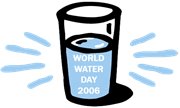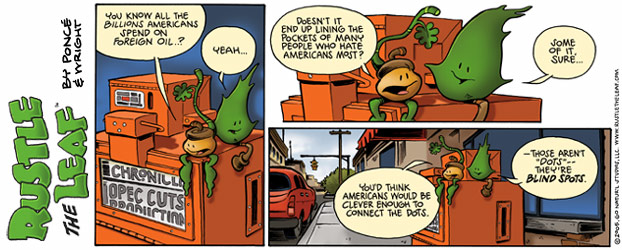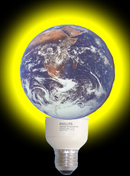FEATURE: World Water Day
 So March 22nd is World Water Day and here are my thoughts on the Global Water Crisis (and there is one believe me), an interview with the head of a leading Water NGO plus 10 things you can actually do right now to conserve water. And out of all 10 only one costs money!
So March 22nd is World Water Day and here are my thoughts on the Global Water Crisis (and there is one believe me), an interview with the head of a leading Water NGO plus 10 things you can actually do right now to conserve water. And out of all 10 only one costs money!My thoughts?
Water has got to be the most abused global resource in history. When you factor in the growing shortages, and I do not just mean in remote third world countries, I mean right here (New Zealand, UK, UK2) in the 'developed' world combined with the amount of conflicts caused by resource-related arguments it makes for scary stuff. It is estimated that more than 1 billion people do not have access to a safe supply of drinking water. Shameful stuff. Read on for more about the problem and more about what you can do about it.
Water is everybody's first problem. We need it more than anything else to survive. Until it is secure in people's lives they have to spend all their time and energy thinking about it which means they are trapped.
Interview
I did not conduct this interview with Gary White (Executive Director and Co-founder of WaterPartners International) myself but it makes for very interesting reading so enjoy.
Let’s start from the beginning. How did you become interested in and committed to sustainable water projects? I became interested in this because I saw it as the intersection of one of the world’s greatest needs and my greatest passion. The roots of that lie in my parents, teachers and my faith. Those influences inspired in me the need to dedicate my life to issues of social justice. Water itself emerged because of experience I had as an undergraduate in the slums of Guatemala City—witnessing children playing in areas saturated by raw sewage and taking their drinking water from disease-ridden water sources helped me to understand safe water as the world’s greatest need that I could help address. My studies in civil engineering seemed to provide a good fit for tackling the global water crisis.Heavy stuff eh? Basically to summarise: Water is life. It is being squandered and wasted and so life is suffering. And when I say life I mean that eventually all life, including you, will be affected directly or indirectly. Lets start treating Water with the respect it deserves.
As the Executive Director of WaterPartners, why did you start the organization how and how does it differ from other water projects? The start of the organization was driven by two key realities: 1) people in the US were oblivious to the global water crisis and 2) many projects that were constructed were going into disrepair. WaterPartners is different because early on we took a hard look at why projects fail and built into our approach best practices that are associated with sustainability. Working exclusively through local partners, requiring community leadership in projects, addressing sanitation and hygiene education are some of the key elements of our work. Integrating these in a way to catalyze great projects set us apart when we first started in 1990. With many of these now widely accepted by many organizations as minimum standards, we now are pushing forward with new innovations, like WaterCredit. We are different because we don’t see our role as simply sinking one more well in one more village, but also finding ways to multiply our efforts by playing a leading role in the international water supply space.
How does the Global water crisis affect international communities in particular? The Global water crisis is the leading cause of death and disease in the world, taking the lives of more than 14,000 people each day, 11,000 of whom are children under age 5. In addition to the health problems, more than 200 million hours are spent every day by women and girls walking to collect water from distant, often polluted sources—time that could be better spent on more productive endeavors such as work and school. When you combine these factors, it’s clear that the Global water crisis is the single biggest problem facing the world’s poor, preventing them from reaching even the first rung on the socioeconomic ladder.
What types of programs has WaterPartners implemented to help communities solve their own water supply problems in a sustainable fashion? The key to the WaterPartners’ approach is involving the community. All WaterPartners projects are designed to be community-empowering, with local water committees overseeing construction and ongoing maintenance of the projects. Since the people who benefit have a real stake in the outcome, it helps to ensure that the projects are sustainable over the long term and won’t fall into disrepair. Also, all of our projects have a health education component, which is vital because many of the people in the project areas lack a good understanding of sanitary practices. And finally, our most recent innovation is the WaterCredit Initiative, which brings a micro-finance approach to water for the first time. By offering small loans where credit is virtually unknown, we give people a vital tool for addressing their water needs.
World Water Day is March 22, 2005. What exactly is World Water Day and how can communities participate? The UN General Assembly designated March 22 as “World Water Day” back in 1992. It is a time set aside to draw attention to the largest public health issue of our time – the global scarcity of clean water. There are a variety of activities being planned around this event. For more information about these, you can visit http://www.worldwaterday2006.org/.
WaterPartners has a great Web site: www.Water.org. Can you describe some of the site's features and what visitors can find there? Of course, there is lots of general information about the organization, including our finances and governance. But I think what people are really drawn to is the stories about the projects. We have a 15-year track record of success in providing clean drinking water to people in developing countries. Our website includes lots of examples and photos of people we’ve helped over the years.
What is your best piece of advice for people interested in helping to solve the global water crisis? The number one thing people can do is to get involved in spreading the word about the Global water crisis. Let your neighbors, church and civic organizations, and your elected leaders know that this is an issue that you care about. And if you really want to make a difference in someone’s life, support an organization like WaterPartners International that is doing something about it.
Children always seem to be the most vulnerable during any health crisis situation. Can you describe how the lack of clean drinking water affects children in particular? The leading cause of child death in the world is diarrhea. Each year, children under age 5 suffer 1.5 billion episodes of diarrhea, 4 million of which are fatal. Even for those children who survive, this chronic diarrhea prevents them from thriving the way they should. And for older girls, the responsibilities of carrying water are a leading cause of dropping out of school.
10 things you can do to conserve water:
- Get involved with a water NGO like Water Partners or WaterAid.
- Put a brick in your toilet cistern if you can and save upto a third with each flush.
- Even better, if it's yellow let it mellow - don't flush for the quick visits.
- To drink cold water don't run the tap: just fill a bottle and refrigerate to chill.
- Don't buy bottled water - moving water around in plastic bottles wastes an awful lot of water. Buy a Sigg like we did.
- "If everyone in England and Wales turned off the tap while brushing their teeth, it would be enough water to supply more than 600,000 homes every day," Environment Agency. Nuff said.
- Wash your car with a single bucket of water to soap and one more bucket to rinse.
- Cut down the number of baths you take.
- If you have a pool or a hot tub, well, frankly, you know what I am gonna say.
- Finally, the best thing you can do to conserve water is tell people about the problem in the first place. Email someone else right now amd tell them about it...feel free to point them to this article for more information.
Al
Technorati tags:
cityhippy
green
environment
sustainable
water
resource
house
drought
desert
shortage

































0 Comments:
Post a Comment
<< Home